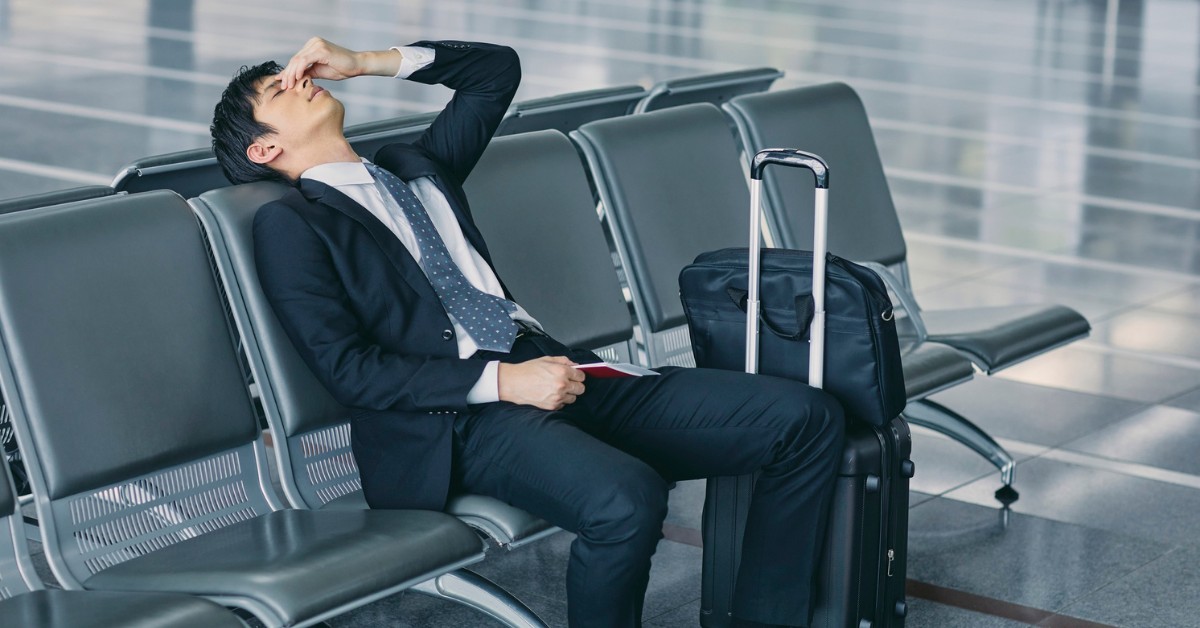The Psychology of Business Travel: How Business Travel Impacts Productivity
Business travel is often framed purely in logistical or financial terms – cost, schedules, destinations. But beneath the surface lies a more subtle dynamic: how hitting the road, or the skies, affects the minds of your people. When frequent travel becomes routine, it can influence stress levels, energy, motivation, and ultimately, productivity. Let’s explore the psychological impacts and then look at practical ways companies can support their teams.
Stress, fatigue and the hidden mental load

Business travel may seem routine, but it often disrupts employees’ stability – from jet lag and time zone shifts to airport delays and unfamiliar surroundings. These constant changes create a cognitive and emotional strain that gradually wears down focus, mood, and resilience. Frequent travellers often experience:
Decision fatigue: every small decision in transit (when to leave, which route, which gate) chips away mental bandwidth.
Sleep disruption: irregular sleep, poor hotel environments, and jet lag alter mood and cognitive sharpness.
Emotional stress: being away from support systems (family, familiar spaces) introduces a subtle emotional toll.
When left unmanaged, this hidden mental load can lead to slower decision-making, weaker concentration, and even burnout – all of which diminish productivity and create uneven pressure across teams.
The upside: novelty, growth and cognitive refresh

It’s not all negative. Travel also offers psychological boosts when managed well:
Novelty and stimulation: new environments, fresh conversations, different cultures can spark creativity and break us from stale thinking patterns.
Sense of purpose: meeting clients face-to-face, going on-site, representing the company lends a stronger sense of mission.
Mental reset: for some, the act of travel acts as a “cognitive reset” – moving away from the day-to-day allows reframing and fresh perspectives.
Some professionals report that a well-planned business trip becomes one of their most productive stretches – if rest and recovery are built in.
Strategies to support psychological well-being and productivity

Limiting travel frequency and allowing time to recover between trips helps prevent fatigue and keeps productivity high. Rotating travel duties or adding buffer days between journeys ensures travellers aren’t heading straight from the airport to a meeting, giving them space to recharge.
Providing travel “resting” tools, such as pre-approved itineraries, quality hotels, reliable transport, and lounge access, reduces decision fatigue and makes travel smoother. Mindful scheduling, like avoiding overnight flights or major time zone shifts, also helps protect energy levels.
Beyond logistics, offering wellbeing support through counselling or peer networks acknowledges the emotional strain travel can bring. Encouraging feedback and flexibility lets employees shape their own itineraries and fosters a stronger, more supportive culture.
Together, these small steps create a healthier approach to business travel – one that values people’s wellbeing as much as their performance.
At Selective Travel Management, we believe business travel can be both efficient and humane. By embedding recovery time, traveller-first planning, and listening to employees, companies turn trips into positive experiences. When travel is treated as a human journey, not just a budget line, it boosts relationships, focus, and sustainable productivity.








